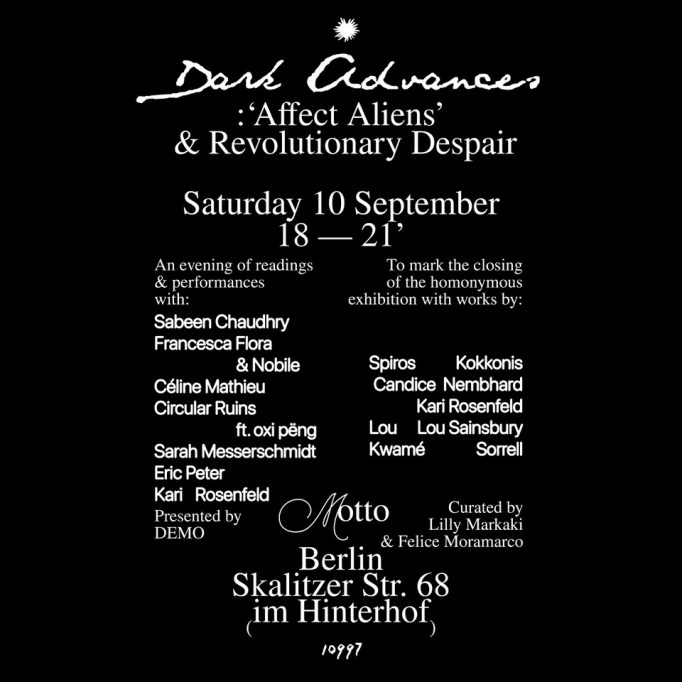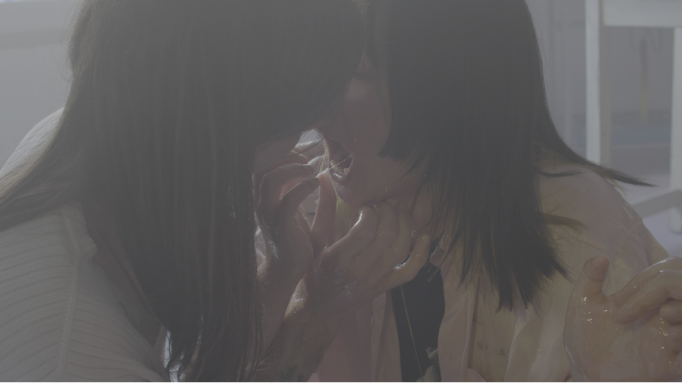Mousse #81. Chiara Moioli, Antonio Scoccimarro (Eds.). Mousse Magazine
Posted in Journals, magazines on October 28th, 2022Tags: Alexandra Symons-Sutcliffe, Antonio Scoccimarro, Arnisa Caterina Zeqo, Astrida Neimanis, Ayo Akingbade, Basement Jazz, Cally Spooner, Céline Mathieu, Chiara Moioli, Christina Lehnert, David Moser, Deborah-Joyce Holman, Faridah Folawiyo, Francisco Tropa, Fujiko Nakaya, Harry Burke, Jerzy Bereś, K Allado-McDowell, Krzysztof Kościuczuk, Laura McLean-Ferris, Leila Peacock, Lisa Robertson, Marina Vishmidt, Michelle Kuo, Mousse #81, Mousse magazine, Olamiju Fajemisin, Olivia Aherne, Reiko Setsuda, Sarah Johanna Theurer, Selma Selman, Simon Lehner, Simone Menegoi, Steph Huang, Stuart Comer, Travis Jeppesen, Whitney Mallett
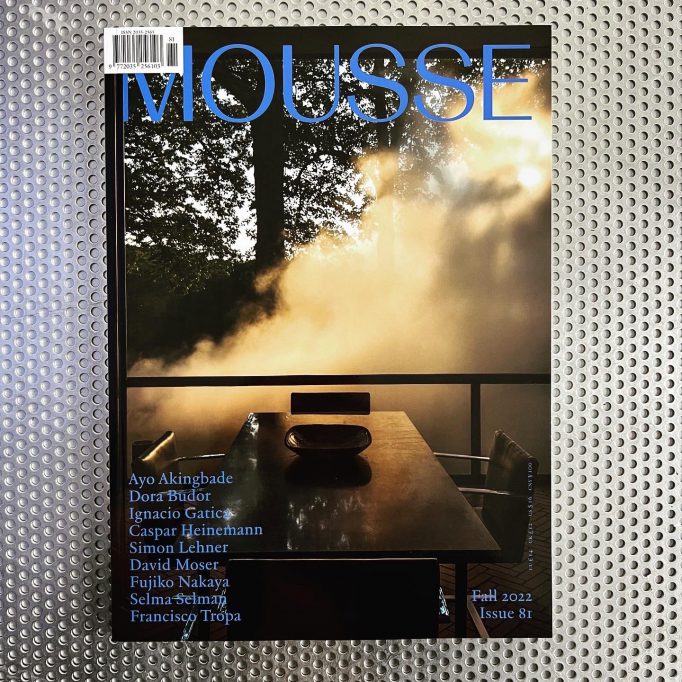
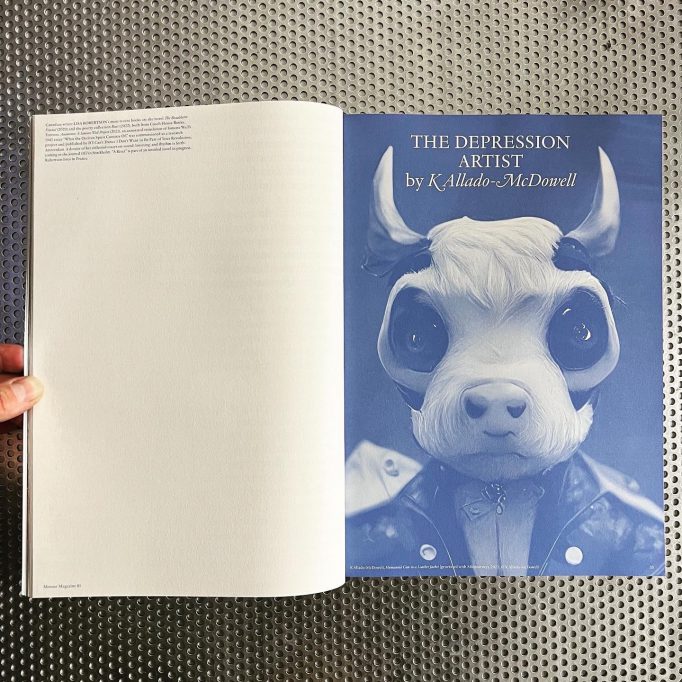
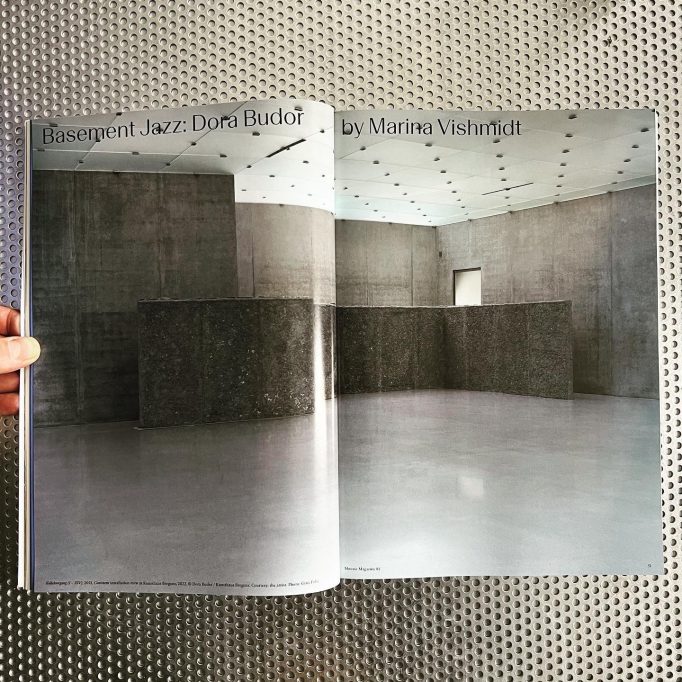
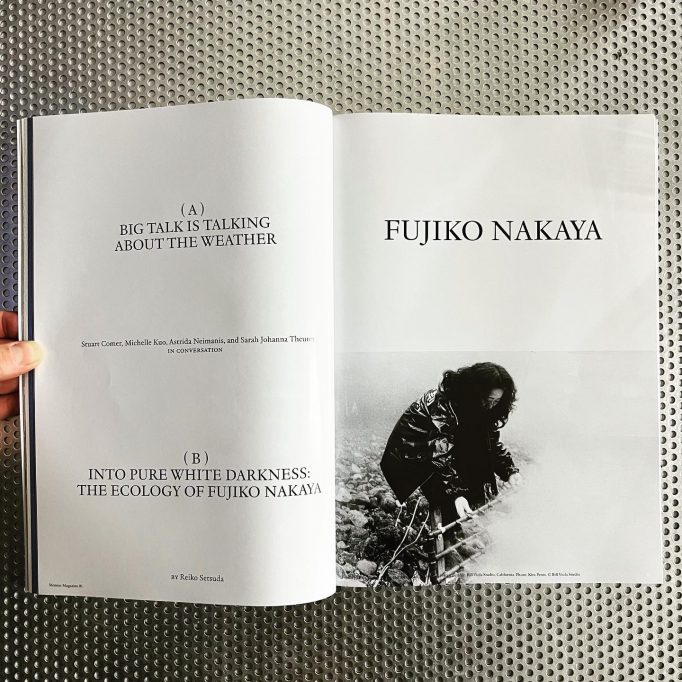
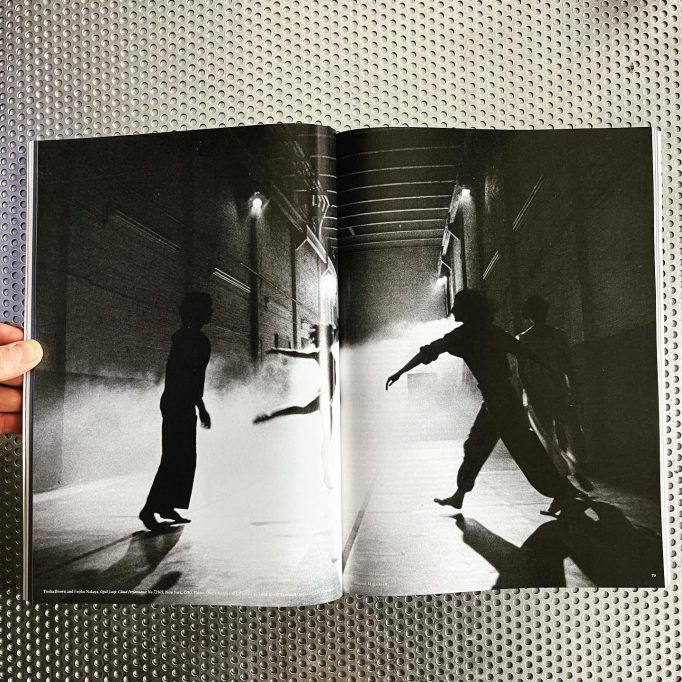
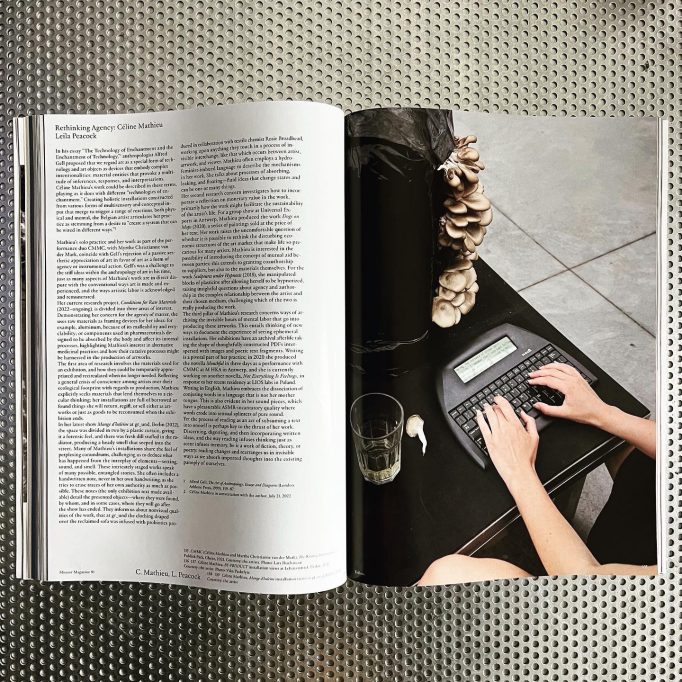
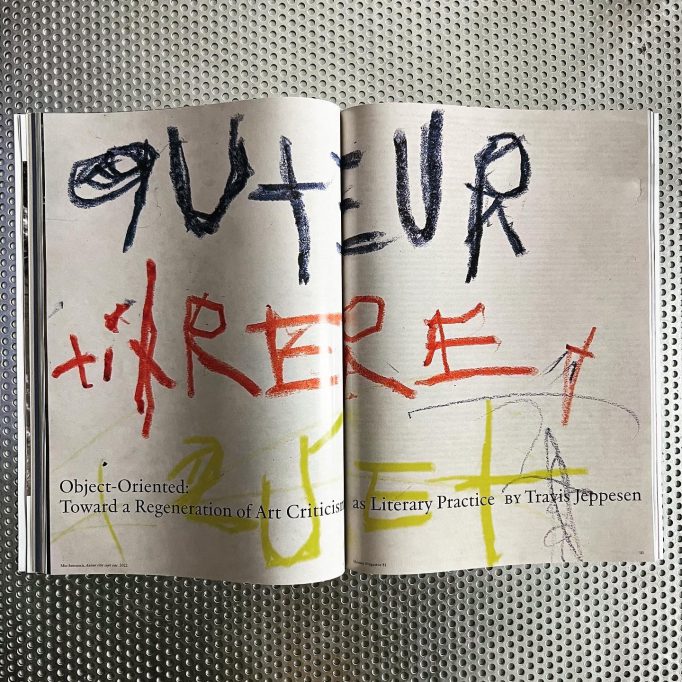
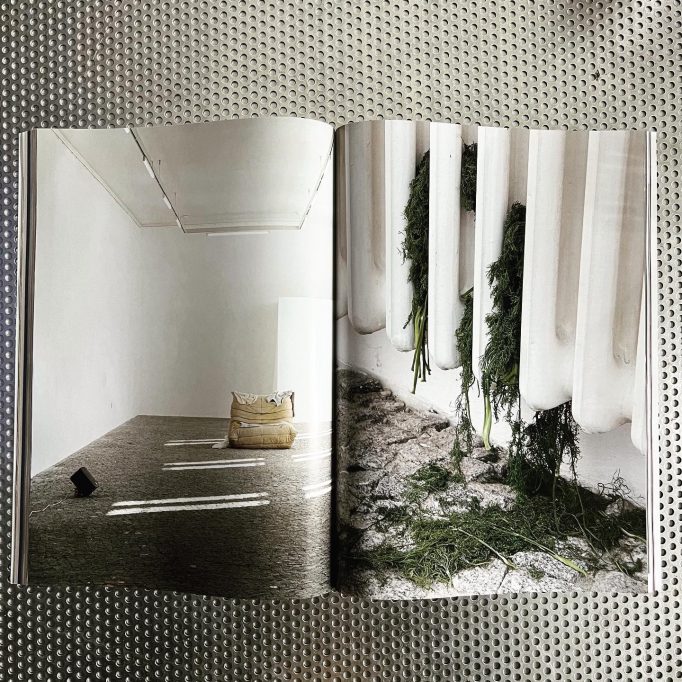
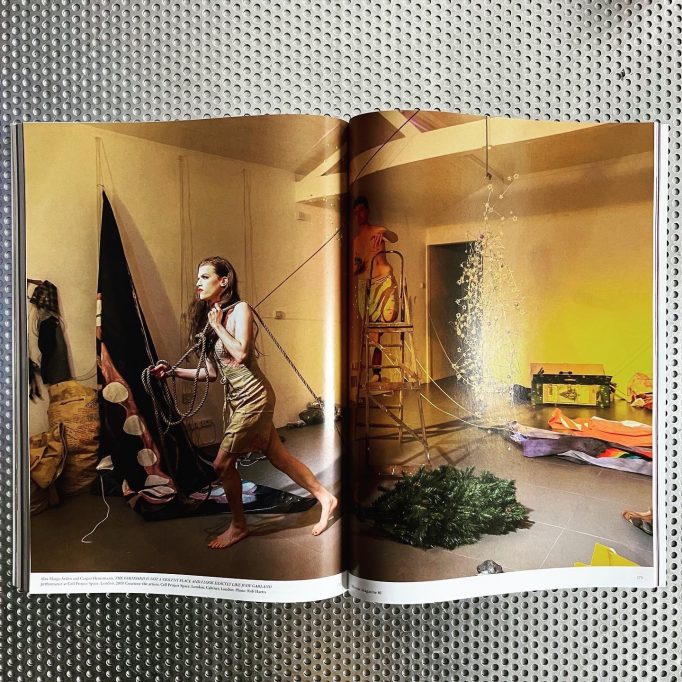
In this issue:
A River
“The story here is that nothing happens. There is no resolution. Things disappear. People disappear. The earth changes. I wake up to write.” Lisa Robertson pens a narrative, part of an untitled novel in progress, about decline and invisibility as freedom. It centers on an aesthetics of decay, bodily and urban, through memories of water—specifically the flooding and ebbing of the Bièvre river.
The Depression Artist
Through a writing process that offers a fractal poetics of AI and a glimpse into the future of literature, K Allado-McDowell and GPT-3—the latter an autoregressive language model that uses deep learning to produce human-like text—coauthor a satirical account of an artist who, having abandoned their brushes in favor of NFTs, finds themselves stuck in a reclusive and stale existence until an unidentified, rhythmic pulse rouses them.
Basement Jazz
In building an imaginary milieu for Dora Budor’s practice, Marina Vishmidt is drawn to the category of “infrastructure,” in the sense of both artists who poeticize or pattern voids into significant structure, and a transversal way of working that is attentive to the conditions of possibility in exhibition. In architectural, economic, linguistic, and organizational ways, Budor generates a transformation of gaps and absences.
Focus on: Fujiko Nakaya
Big Talk Is Talking about the Weather
Into Pure White Darkness: The Ecology of Fujiko Nakaya
An early member of Experiments in Art and Technology and a crucial figure for Japanese video art, Fujiko Nakaya is mostly known for her sculptural and installation ecosystems using fog. Here, Stuart Comer, Michelle Kuo, Astrida Neimanis, and Sarah Johanna Theurer discuss the artist’s environmental awareness, the poetics of the fog, and what it means to talk about the weather, while Reiko Setsuda retraces Nakaya’s collaborative and networked thinking. Nakaya’s approach does not objectify nature but treats the global environment as an organic ecosystem shaped by social, political, and technological relations.
Object-Oriented: Toward a Regeneration of Art Criticism as Literary Practice
Could the key to art criticism’s present-future redemption be found in the past? Travis Jeppesen muses on the origins of critical commentary, guiding our way through the dispute opposing “art criticism” and “art writing.” Via an analysis of different categories, such as meta- and ficto-criticism, Jeppesen debunks how a “poetics of indeterminacy” may grace and empower a form of art writing that is a vanguard practice within the wider genre of art criticism.
The House in Which We Live
Seamlessly moving from the page into sculpture, installation, and performance, and often focusing on histories of queer community, Caspar Heinemann responds to a short but significant period in British history with humor and irreverence, and with an intimate and melancholic material sensitivity. Alexandra Symons-Sutcliffe reflects on Heinemann’s linguistic play with poetic negations and absences.
A Hypothesis of Resistance
In the first of a series of five essays aimed at examining the temporalities of performance, defying and eclipsing the standardization that drives individual and collective bodies to perform toward an entirely metric-oriented future, Cally Spooner intertwines the psoas major muscle; Donald W. Winnicott’s studies on developmental psychology; motherhood; and chrononormativity.
Concrete Poetry
Through installations that combine conceptual rigor with revolutionary poetry, Ignacio Gatica investigates the long shadow of neoliberalism in Chile. Harry Burke peruses how the weaknesses and contradictions of Chilean politics’ recent history interweave with Gatica’s practice, pointing to social movements whose demands extend beyond the constitutional forms of liberal democracy.
Tidbits:
Céline Mathieu by Leila Peacock; Jerzy Bereś by Krzysztof Kościuczuk; David Moser by Laura McLean-Ferris; Ayo Akingbade by Faridah Folawiyo; Steph Huang by Olivia Aherne; Selma Selman by Arnisa Caterina Zeqo; Simon Lehner by Christina Lehnert; Deborah-Joyce Holman by Olamiju Fajemisin; Francisco Tropa by Simone Menegoi.
Book Reviews by Whitney Mallett.
Order here

